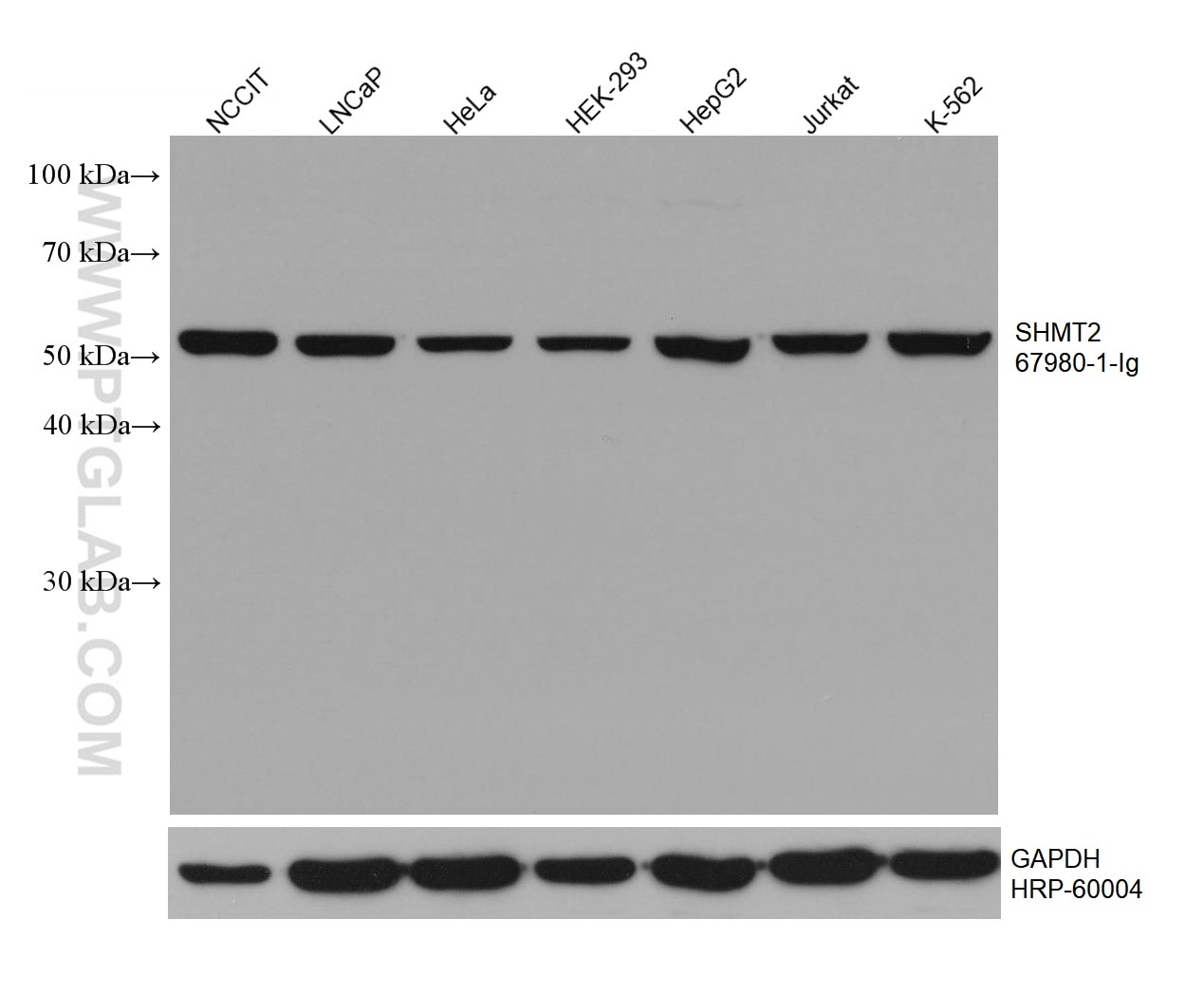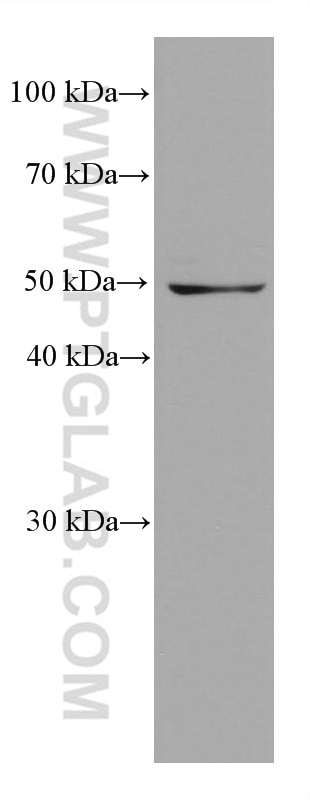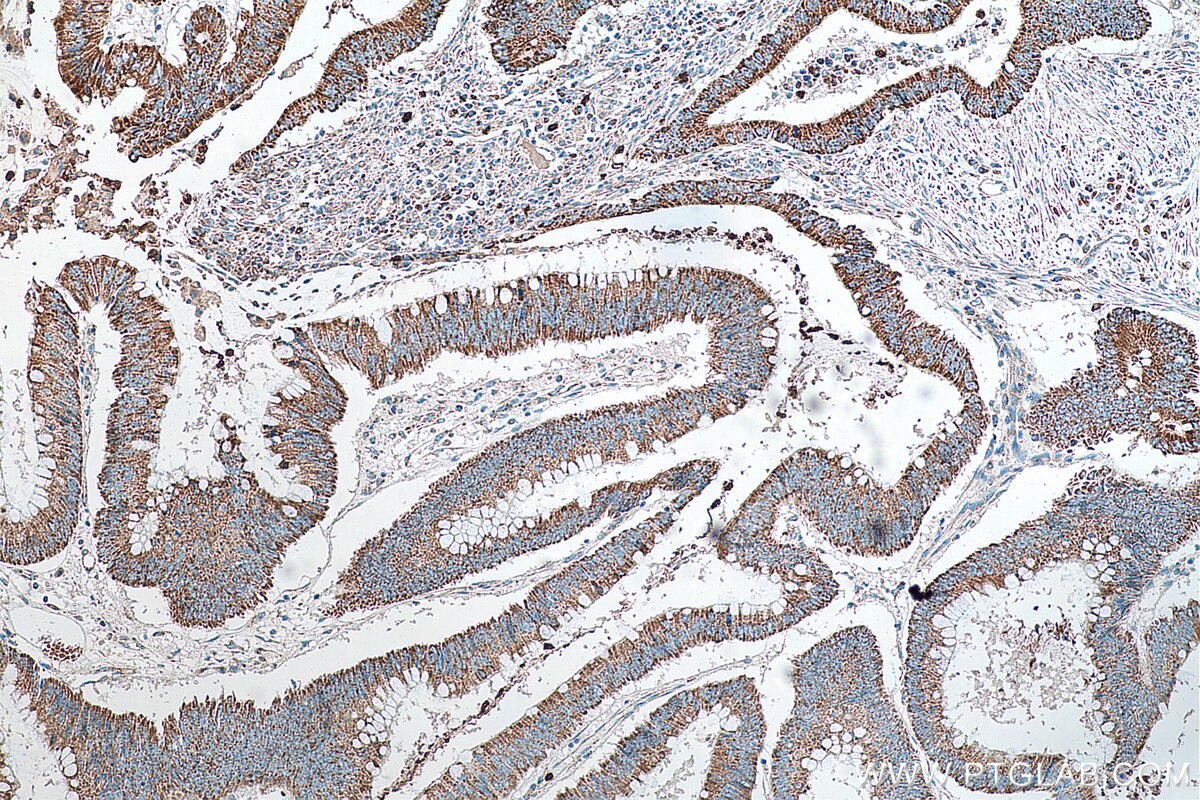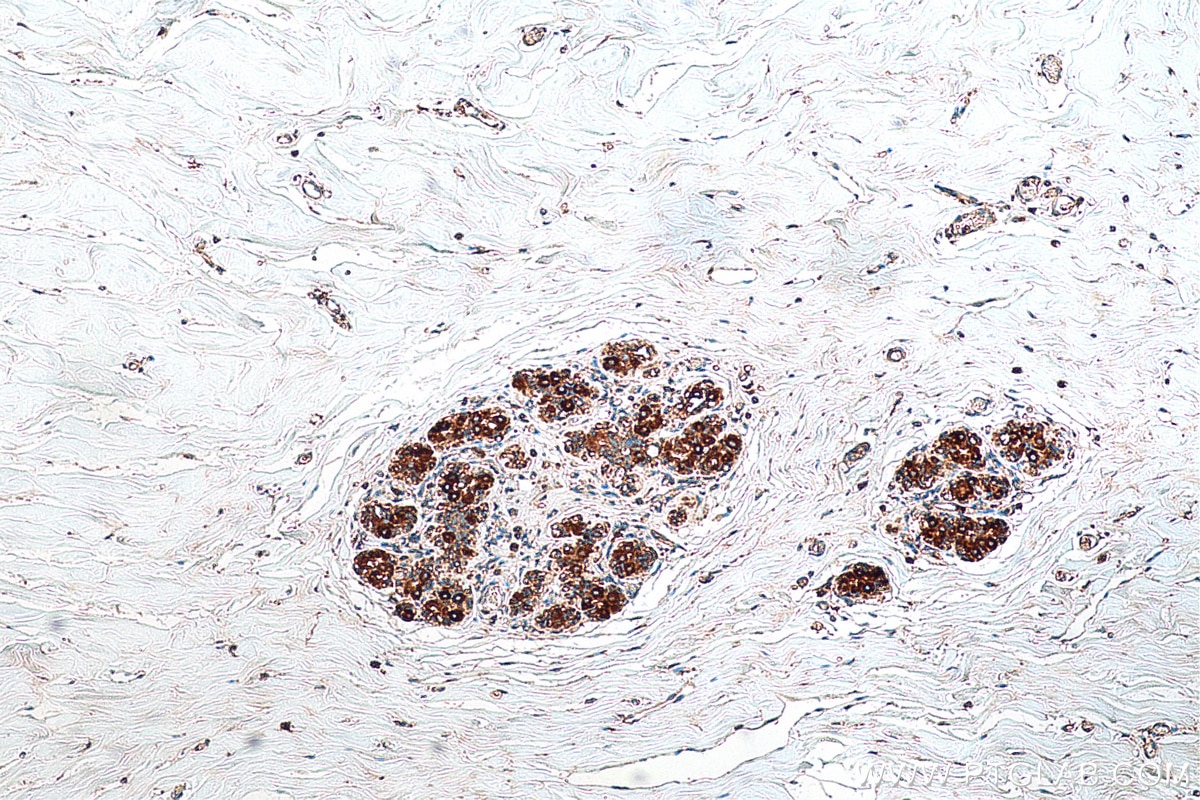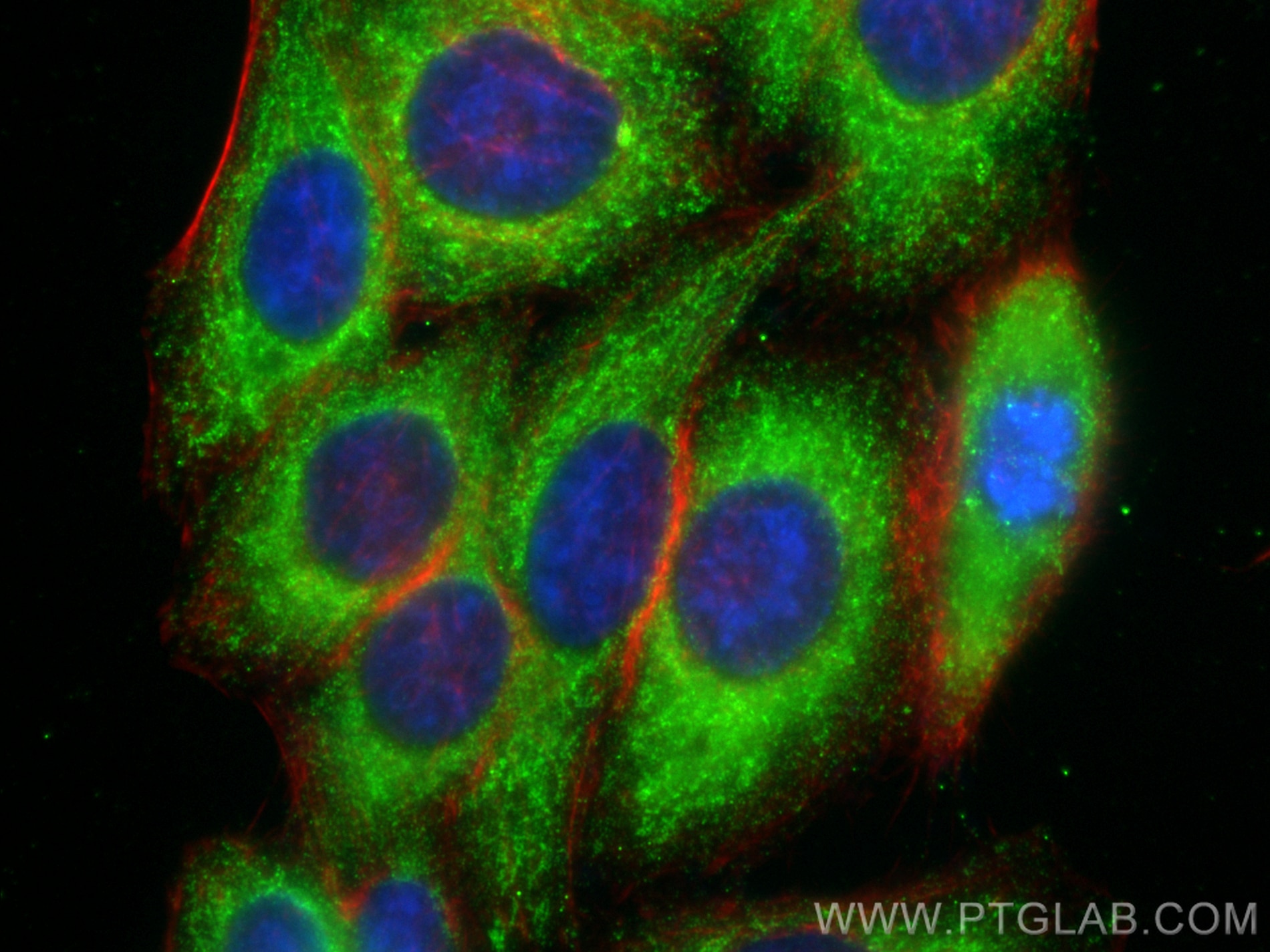Tested Applications
| Positive WB detected in | NCCIT cells, HSC-T6 cells, LNCaP cells, HeLa cells, HEK-293 cells, HepG2 cells, Jurkat cells, K-562 cells |
| Positive IHC detected in | human colon cancer tissue, human breast cancer tissue Note: suggested antigen retrieval with TE buffer pH 9.0; (*) Alternatively, antigen retrieval may be performed with citrate buffer pH 6.0 |
| Positive IF/ICC detected in | HepG2 cells |
Recommended dilution
| Application | Dilution |
|---|---|
| Western Blot (WB) | WB : 1:5000-1:50000 |
| Immunohistochemistry (IHC) | IHC : 1:650-1:2600 |
| Immunofluorescence (IF)/ICC | IF/ICC : 1:400-1:1600 |
| It is recommended that this reagent should be titrated in each testing system to obtain optimal results. | |
| Sample-dependent, Check data in validation data gallery. | |
Product Information
67980-1-Ig targets SHMT2 in WB, IHC, IF/ICC, ELISA applications and shows reactivity with human, rat samples.
| Tested Reactivity | human, rat |
| Host / Isotype | Mouse / IgG1 |
| Class | Monoclonal |
| Type | Antibody |
| Immunogen | SHMT2 fusion protein Ag1584 Predict reactive species |
| Full Name | serine hydroxymethyltransferase 2 (mitochondrial) |
| Calculated Molecular Weight | 55 kDa |
| Observed Molecular Weight | 52-55 kDa |
| GenBank Accession Number | BC011911 |
| Gene Symbol | SHMT2 |
| Gene ID (NCBI) | 6472 |
| RRID | AB_2918729 |
| Conjugate | Unconjugated |
| Form | Liquid |
| Purification Method | Protein G purification |
| UNIPROT ID | P34897 |
| Storage Buffer | PBS with 0.02% sodium azide and 50% glycerol, pH 7.3. |
| Storage Conditions | Store at -20°C. Stable for one year after shipment. Aliquoting is unnecessary for -20oC storage. 20ul sizes contain 0.1% BSA. |
Protocols
| Product Specific Protocols | |
|---|---|
| WB protocol for SHMT2 antibody 67980-1-Ig | Download protocol |
| IHC protocol for SHMT2 antibody 67980-1-Ig | Download protocol |
| IF protocol for SHMT2 antibody 67980-1-Ig | Download protocol |
| Standard Protocols | |
|---|---|
| Click here to view our Standard Protocols |
